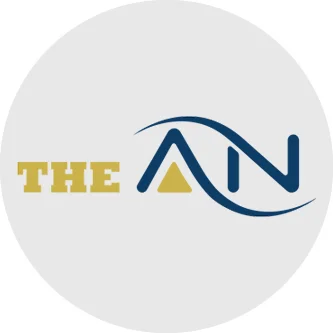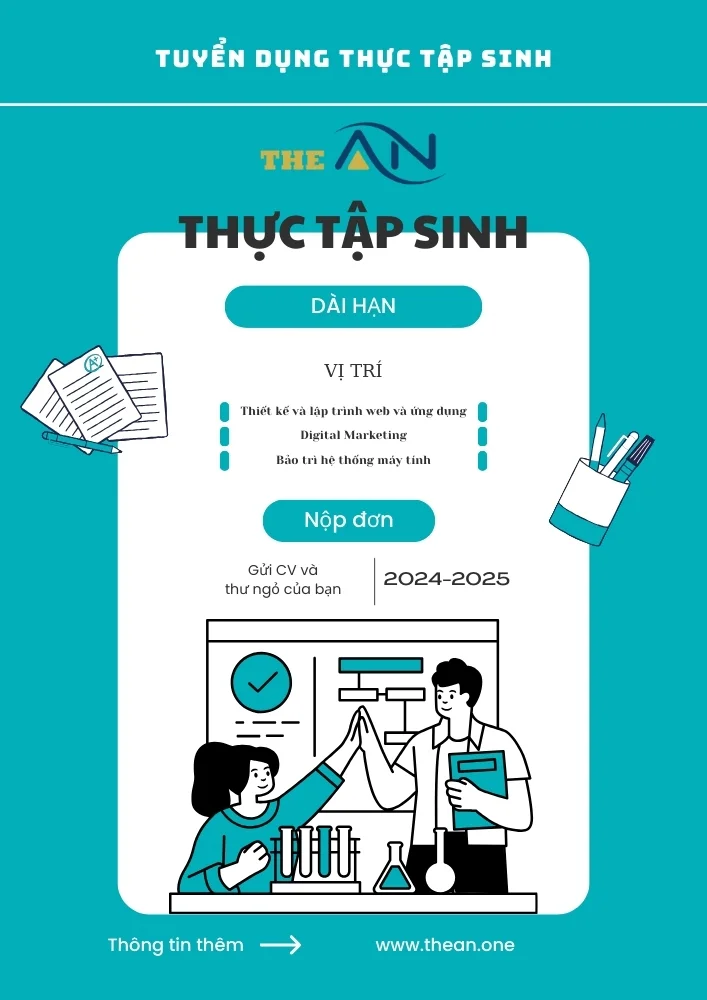Interjections – Definition, Types, Rules and Examples

An interjection is a word or phrase expressing some kind of sudden feelings of sadness or emotions. Interjections are a type of part of speech, but in a sentence, they are not grammatically connected to other parts of a sentence. Interjections are those common words which use in everyday speech and informal writing. There are no particular rules as to where interjections should be placed in a sentence, but most often, they are seen to appear at the beginning of a sentence. It’s used to form exclamatory sentences.
Table of Content
- What is interjection
- Interjection definition
- Examples of Interjection
- Types of Interjection
- Rules of Interjections
- List of Interjections
- List of Most Commonly Used Interjections
- Interjections vs. conjunctions
- Interjections Quiz/Practice Questions on Interjections
- FAQs on Interjections
What is interjection
An interjection is a part of speech that is used to express the feeling, feelings of emotions, feelings of sadness, feelings of joy, etc.
Interjection definition
Many learner dictionaries define interjections in many types. there are some most popular learner’s dictionaries that explain interjection as:
(i) According to the Oxford Learner’s Dictionary, is interjection defined as “a short sound, word or phrase spoken suddenly to express an emotion.”
(ii) The Cambridge Dictionary defines as “a word that is used to show a short sudden expression of emotion.”
(iii) According to the Merriam-Webster Learner’s Dictionary, is defined as “a word or phrase used in exclamation.”
(iv) The Macmillan Dictionary, an interjection is “a word or phrase used for expressing a strong emotion such as surprise or anger.”
(v) The Collins Learner’s Dictionary defines as “a word or expression which you use to express a strong feeling such as surprise, pain, or horror.”
Examples of Interjection
- Oh, what a beautiful house!
- Uh-oh, this looks bad.
- Well, it’s time to say good night.
- Hurray! We won the final match.
- Ouch! That hurt too badly.
- Wow! That is a beautiful sight.
- Oh my God! That was unexpected.
- Whoa! That guy was unbelievably huge.
(Highlighted words are interjections.)
Types of Interjection:
There are 10 types of interjection present here:
1. Primary Interjection:
Those words which cannot be classified as any other Parts of Speech and are only used as interjections in the sentence are called Primary Interjections.
Examples:
- Wow! You had time to join us.
- Alas! I couldn’t be there on time.
2. Secondary Interjection:
Types of Parts of Speech such as Noun, Adjective, Adverb, etc. when acting as interjections on occasion are called Secondary Interjections.
Examples:
- Indeed, I was waiting for your first warning.
- Goodness! How did you go through all these 5 books in a day?
3. Mild Interjection:
The words which are used for expressing mild feelings and emotions are usually called Mild Interjections. These words are typically separated from the rest of the sentence by commas.
Examples:
- Oh, He was looking for you.
- Well, it was so easy.
4. Strong Interjection:
The words which are used for strong outbursts of expression are determined as Strong Interjections. Such types are typically separated from the rest of the sentence by exclamation marks.
Examples:
- Yay! I finally passed.
- Bingo! Found it.
5. Volitive Interjection:
It is used to give a command or make a request in the sentence.
Examples:
- Shh! I can’t focus when you’re singing.
- Ahem. Please pay attention.
6. Emotive Interjection:
Words are used to express an emotion or to indicate a reaction to something.
Examples:
- Ugh! What is that filthy smell? (Ugh: I feel disgusted)
- Ouch! These ants sting. (Ouch: I feel hurt)
7. Cognitive Interjection:
The words are used to express a thought or indicate a thought process that people come across and understand through experience.
Examples:
- Well, I’ll try harder.
- Gosh, you’re so fast.
8. Discourse Marker Interjection:
These interjections are used to indicate the speaker’s attitude or to signal the start or end of a conversation or a change in topic.
Examples:
- Anyway, let’s get back to the topic.
- By the way, have you seen the new movie?
9. Fillers:
These interjections are used to fill gaps in the conversation or to indicate hesitation, uncertainty or lack of words.
Examples:
- Um, I am not sure what to say.
- Er, let me think about it.
10. Parenthetical Interjection:
These interjections are used to insert a comment or explanation in the middle of a sentence.
Examples:
- I, well, I am not really sure about that.
- She is, I mean, was really upset about the situation.
Rules of Interjections
There are no particular rules are makes for using interjections. But most often, they are seen appear at the beginning of a sentence. These words are used to form exclamatory sentences. Yet these are some rules for Interjections:
1. An interjection can be used before or after a statement that explains what is happening.
Example:
- Wow! That is an incredible scene.
- What? That’s something you never told me!
2. Some interjections are limited to expressing yes or no.
- Yes! I’m sure I’ll pull it off.
- No way, are we going
3. Some interjections are used to break up a conversation or a thought or to hold someone’s attention for a brief period.
- On the back of your shirt, um there’s a stain.
- The date went meh.
4. In casual and informal writing, interjections are acceptable. It’s also alright to use them in conversation.
Besides these rules, you may define them in simple such as:
i) The interjection forms a sentence alone, follow it with a full stop, question, or exclamation mark.
ii) The interjection comes at the start of a sentence, follow it with a comma or a hyphen.
iii) The interjection appears within a sentence, surround it with commas, brackets, or hyphens.
iv) The interjection comes at the end of a sentence, precede it with a comma or a hyphen.
List of Interjections:
Here is a List of Interjections:
| Words Character | Interjection words |
|---|---|
| A | aha, ahem, ahh, ahoy, alas, arg, aw |
| B | bam, bingo, blah, boo, bravo, brrr |
| C | cheers, congratulations |
| D | dang, dart, darn, duh |
| E | eek, eh, encore, eureka |
| F | fiddlesticks |
| G | gadzooks, gee, gee whiz, golly, goodbye, goodness, good grief, gosh |
| H | ha-ha, hallelujah, hello, hey, hmm, holy buckets, holy cow, holy smokes, hot dog, huh, humph, hurray |
| O | oh, oh dear, oh my, oh well, oops, ouch, ow |
| P | phew, phooey, pooh, pow |
| R | rats |
| S | shh, shoo |
| T | thanks, there, tut-tut |
| U | uh-huh, uh-oh, ugh |
| W | wahoo, well, whoa, whoops, wow |
| Y | yeah, yes, yikes, yippee, yo, yuck |
List of Most Commonly Used Interjections:
There are some most commonly used Interjections with examples are:
| Interjections | Examples |
|---|---|
| Ugh | Ugh! I can not believe how moldy the fridge is. |
| Wow | Wow, nice work! I am impressed. |
| Nice | A lazy morning on a Sunday, nice! |
| Woohoo | Woohoo! I won the match. |
| Cool | Cool! I did not know you could open a beer with your teeth. |
| Win | Those shoes were only 500 rupees? Win! |
| Huh | Huh! I did not know your mummy was a pilot, that is interesting. |
| Noo | Noo, I thought the food would be here by now. |
| So | So … what did you want to speak to me about? |
| Ouch | Ouch! I am not sure you should have been so honest. |
| Yup | Yup, we can have that fixed for you in about an hour. |
| Oh my | Oh my! Did you see how much that man looked like his dog? |
| Sweet | Sweet! I shall meet you at the park tomorrow at two. |
| Awesome | Awesome! We can sit next to each other on the plane! |
| Hmm | Hmm, I am not sure! I think I will be able to finish that by Friday. |
| Yeah | Yeah! We should try that! |
| Uh oh | Uh oh, The shower is broken again. |
| Oh man oh | Oh man, I spilt ice cream on my favourite coat |
| Ew | Ew! You are going to eat that after it is been on the floor? |
| Ahh | Ahh, I get it now. I thought you meant something else. |
| Sure | Sure, You can book the tickets tonight if I want. |
| Hey | Hey! How are you doing? We have not spoken in a while. |
| Um | Um — I think we need to come up with a new plan. |
| Ha | Ha, no it was not like that. |
| Oh dear oh | Oh dear, I think I should go to bed a bit earlier tonight. |
| Yikes | Yikes! That is a bit intense for a first date, isn’t it? |
| Oops | Oops, I think I called that guy by the wrong name. |
| Like | I am not sure. Like, maybe five or seven times? |
| Jeez | He has already rung me three times today! Jeez! |
| Ahem | Ahem! I am still waiting! |
Interjections vs. conjunctions
Interjections are used to express strong or sudden emotion and are usually grammatically separate from other sentences. Interjections are most effective when used sparingly. On the other hand, conjunction is three types: coordinating, correlative, and subordinating. They are the keys to logically constructed sentences.
| Interjection | Conjunction |
|---|---|
| Interjections are expressions that show sudden emotion. | Conjunctions are words that connect two words or two phrases. |
| Do not have a grammatical function at all. | The grammatical function of joining two phrases or words together. |
| Can be placed at the beginning, middle, or end of the sentences. | Should be placed considering the meaning of the sentences. |
| Used mainly in informal writing. | Used in both formal and informal writing. |
Interjections Quiz/Practice Questions on Interjections
Fill in the blanks with a suitable interjection in the following sentences.
(Ouch, yippee, bravo, alas, my God, well, uh, ah, wow, oh no)
- ______, that is new!
- ______ That hurt me more than I thought it would.
- ______ He got the tickets to the movie premier night.
- ______ I do not want to do it this way.
- ______ You did a really big job with that piece of furniture.
- ______ now I understand what he was trying to say.
- ______ That should have upset you.
- ______ He has not cleared the internal assessment.
- ______ That was a really brave thing to do.
- ______ The waiting list for the reserved seats is too long; I do not think he would get a seat
Check out if you have filled in the blanks with the right interjections from the answers given below.
- Well, that is new!
- Ouch! That hurt me more than I thought it would.
- Yippee! He got the tickets to the movie premier night.
- Uh, I do not want to do it this way.
- Wow! You did a really big job with that piece of furniture.
- Ah, now I understand what he was trying to say.
- Oh no! That should have upset you.
- Alas! He has not cleared the internal assessment.
- Bravo! That was a really brave thing to do.
- My God! The waiting list for the reserved seats is too long; I don’t think we would get a seat
FAQs on Interjections
Interjections are words or phrases used to convey strong emotions, reactions, or exclamatory remarks. Here are some common interjection words and phrases in English:
- Wow: Used to express surprise or admiration.
- Oh: Indicates various emotions like surprise, disappointment, or realization.
- Ouch: An expression of pain or discomfort.
- Hey: Used to get someone’s attention or as a greeting.
- Yay: An expression of joy or excitement.
- Oops: Used to acknowledge a mistake or accident.
- Aha: An expression of understanding or realization.
- Hurray: An expression of celebration or happiness.
- Phew: Indicates relief.
- Well: Used to introduce or pause before a statement.
These are just a few examples of interjections. They add emotional depth and spontaneity to language, making communication more expressive.
There are some examples of Interjections
- To pain — Ow, ouch.
- To displeasure — Boo, ew, yuck, ugh, shoot, whoops, rats.
- To surprise — Gosh, goodness.
- To pleasure — Yay, yippee.
- To congratulate — Cheers, congratulations.
- To commiseration — Oh well, oh no.
- To fear — Eek, yikes.
The 7 types of Interjections are:
- Primary Interjection
- Secondary Interjection
- Mild Interjection
- Strong Interjection
- Volitive Interjection
- Emotive Interjection
- Cognitive Interjection
Uh, alas, oh, hurray, yippee, bravo, well, oh dear, wow, ah, uh, etc. are the most common interjections examples.
Interjections are used to express strong emotions or reactions in a sentence. They add emotion and exclamatory emphasis, making your communication more expressive and conversational. For example, “Wow! That’s incredible!” expresses surprise and admiration.
Quý anh/chị đang tìm kiếm một doanh nghiệp uy tín cung cấp dịch vụ Công Nghệ Thông Tin như Thiết kế và lập trình website, Digital Marketing, hoặc dịch vụ Bảo trì và chăm sóc hệ thống máy tính, ...? Đừng ngần ngại hãy liên hệ với The ÂN qua số điện thoại (+84).326.418.478 để được tư vấn cụ thể, hoặc liên hệ qua mẫu tin.
Các thông tin nổi bật khác:









